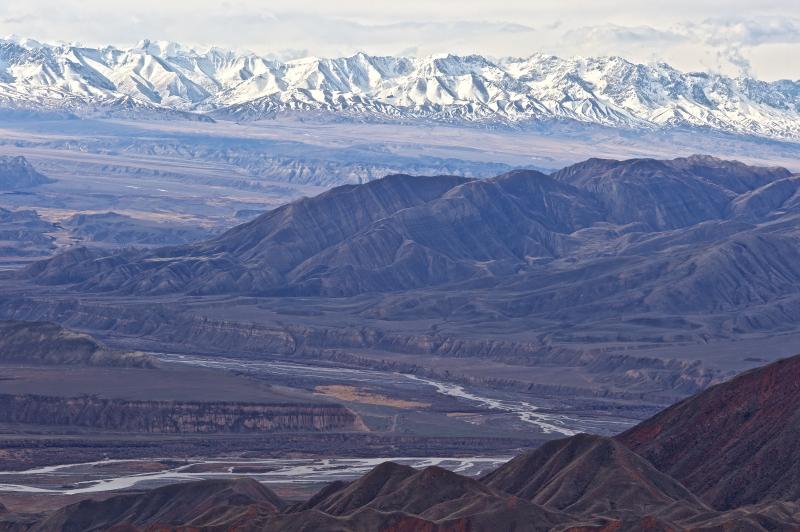He stated that «shadow capitalists» would be guaranteed confidentiality and exemption from inspections and harassment. This initiative is being proposed as part of a stimulus package for the economy, which has been negatively affected by the coronavirus.
The bill has a history: it was first introduced in November 2018. At that time, its progress was slowed while the Kyrgyz Republic was being assessed by the regional anti-money laundering organization FATF (EAG) due to concerns about a negative impact on the country’s evaluation. Now, the bill has been revived.
According to the draft law, any amount up to 70 million soms can be declared without paying taxes. If the value of the assets to be legalized exceeds 70 million, the declarant will have to pay a fixed amount of 700,000 soms, and they will be able to legalize at least a billion soms—there are no restrictions. For funds held in foreign bank accounts, a declaration fee of 5% of the amount is stipulated.
The money and property declared will not be subject to tax audits. The bill states that «information contained in the declaration and documents attached to it are recognized as commercial and tax secrets in accordance with the legislation of the Kyrgyz Republic.»
A unique feature of the bill (which hints at its main beneficiaries) is the ability to declare other people’s money as one’s own. According to subparagraph 5 a) of paragraph 1 of Article 3 of the draft, one can even declare funds currently held in other people’s accounts as their own. Within Kyrgyzstan, this can be done free of charge—except for payments from amounts exceeding 70,000,000 soms. However, to accept any payment from a third-party account abroad and claim it as one’s own money, a 5% fee of the amount is required.
Upon analysis, it becomes evident for whom this legalization is being prepared.
It is certainly not for businesses. It would be difficult to find any businessperson who would now trust in «confidentiality» and «guarantees.» After two and a half years of raiding, did the authorities suddenly decide to provide guarantees to businesses? The idea seems laughable. Guarantees of private property protection are already enshrined in the Constitution, but they do not prevent the ongoing redistribution of assets by law enforcement agencies and tax authorities. So, businesses will certainly not participate in any amnesty or declaration.
Then who is this for? Former officials like Zhumaliev, whose property is currently being investigated by the Financial Police? Unlikely. If the officials who accumulated assets under previous presidents have not yet integrated into the new power structure, they will trust the «guarantees» and «confidentiality» of the ruling group even less than businesspeople.
So for whom is the amnesty intended? It seems to be solely for officials of the current government. They need it to legalize their suddenly acquired assets and capital so that their families can freely invest the money. They will legalize it for relatives—some for close family members, others for distant ones—pretending they were doing business, underpaid taxes, and are now ready to invest in the economy in exchange for legalization. As long as they remain in power, they will ensure all necessary documents are in order to maintain these assets later.
When activists question another law enforcement or customs oligarch about why their relatives control such substantial capital, they will legally respond: «I apologize, this is legal capital. My relative earned it, albeit with minor tax violations, but we paid the declaration fee, and the rest is a secret protected by law.» «Commercial and tax secrets,» as previously mentioned.
If the law is passed, any bureaucratic relative will be able to declare any amount, claiming that they simply did not pay taxes on it. And that’s it. The amount will essentially be considered received as a result of entrepreneurial activity—unless the opposite is proven (which is nearly impossible to prove, given the confidential nature of bribes). Moreover, those who desire can replenish their family’s stock of «legal» capital by receiving funds from friendly foreign businessmen—in order to legally declare them as their own, but previously held by third parties. This privilege, however, will cost the legalizer 5% of the amount.
The experience of Russia, where several amnesties and «deoffshorizations» have taken place over the past five years, indicates that the first to «deoffshorize» their capital were not businesspeople, but relatives of officials.
In Ukraine, during the last year of Poroshenko’s presidency, officials and their relatives suddenly became the largest official owners of cryptocurrency—numerous strange declarations involving bitcoins were made public that year. The idea was that such an asset (often imaginary) could be «sold» at the right time, while maintaining high tax efficiency. The Kyrgyz kleptocrats are now attempting to do something similar.
However, in the long run, these efforts will likely amount to nothing. Historical parallels provide insight.
On January 21, 2010, the Bakiev Jogorku Kenesh adopted a draft law «On preparation for the submission of a single tax declaration by citizens of the Kyrgyz Republic,» which allowed for tax-free and duty-free legalization of income and property.
Less than four months later, an enraged public enthusiastically supported the armed coup organized in April 2010, and the power of the Bakiyev clan came to an end.
Subsequently, the new government carried out a raider attack on all assets of the Bakiyev family, including friends, partners, and associates. Another wild, greedy, unconstitutional redistribution of property took place—naturally, no one remembered any laws on capital amnesty. The «declarants» who were exposed only made it easier for raiders to gather information about whom they could extract funds from.
It has been six years. On the eve of his departure from the presidency, Atambaev pushed through a national referendum for a new constitution, which also contained provisions on property rights protection. A rhetorical question—did these guarantees help his confidants and close businesspeople after only two years?
In Kyrgyz history, this cycle will continue indefinitely, with both entrepreneurial and bureaucratic assets under constant attack.
If the government truly wants to attract money to the legal economy—white, gray, purple, in need of tax legalization or not—what is needed is not a law that allows for the whitewashing of corruption accumulations, but the creation of an independent judicial system in Kyrgyzstan for all citizens and businesses. Such a judicial system would, by definition, stand above security forces and other extortionists and raiders, as well as overreaching tax officials.
An independent judiciary (under a democratic government) is the only real guarantee for property protection. It is disheartening to think about how our country could prosper if it provided genuine protection for all invested capital.
However, the current government is unlikely to take this step.
So, for now, we will observe how relatives of well-known individuals legalize their «business capital, from which they simply forgot to pay taxes.» Until the next revision.
Talent Karaev





